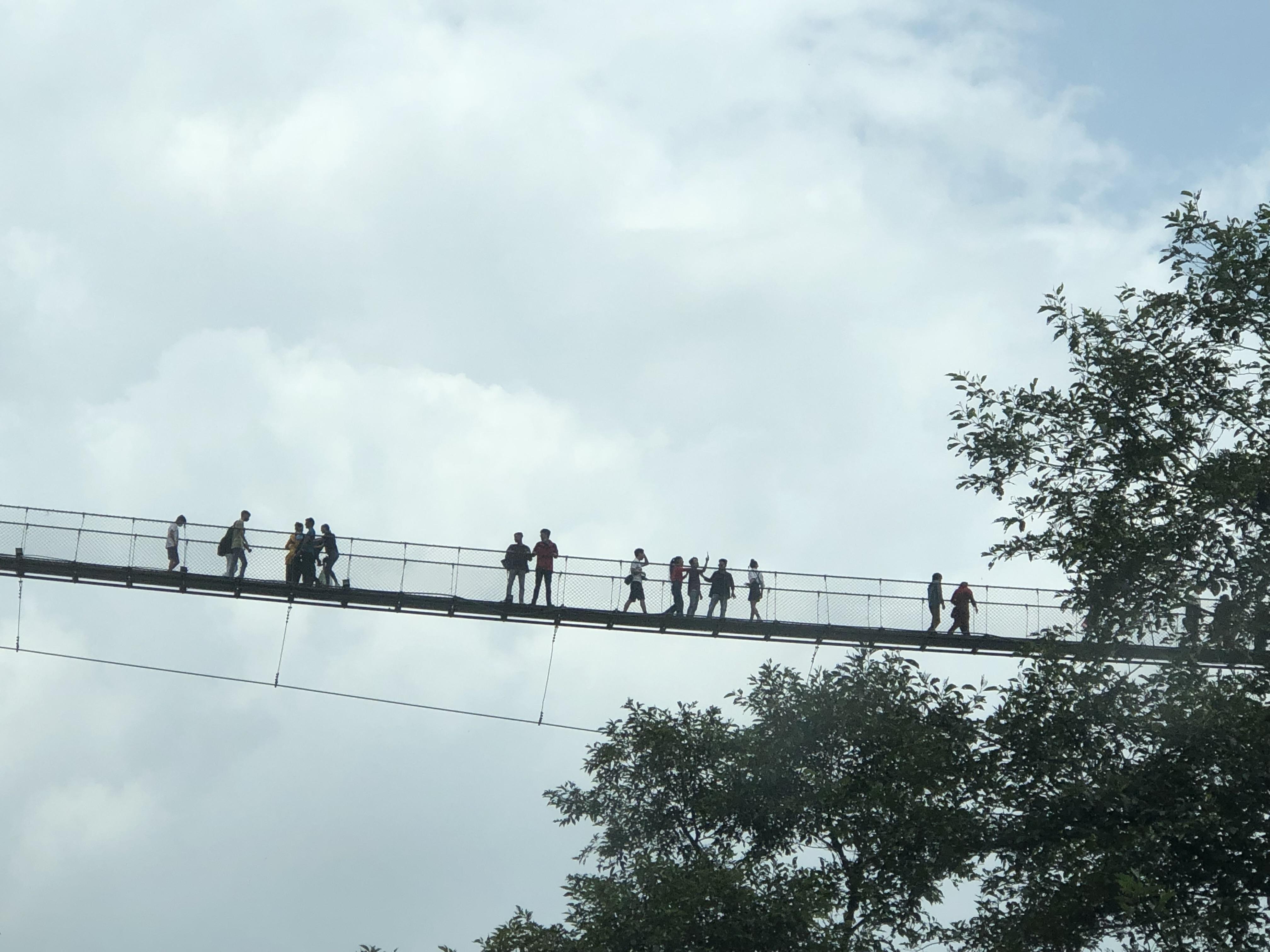Winter Amp - Nepal
January 2025: The UMD Global STEWARDS are in Nepal!
Visit this page for blog updates and photos from the Kathmandu Valley.
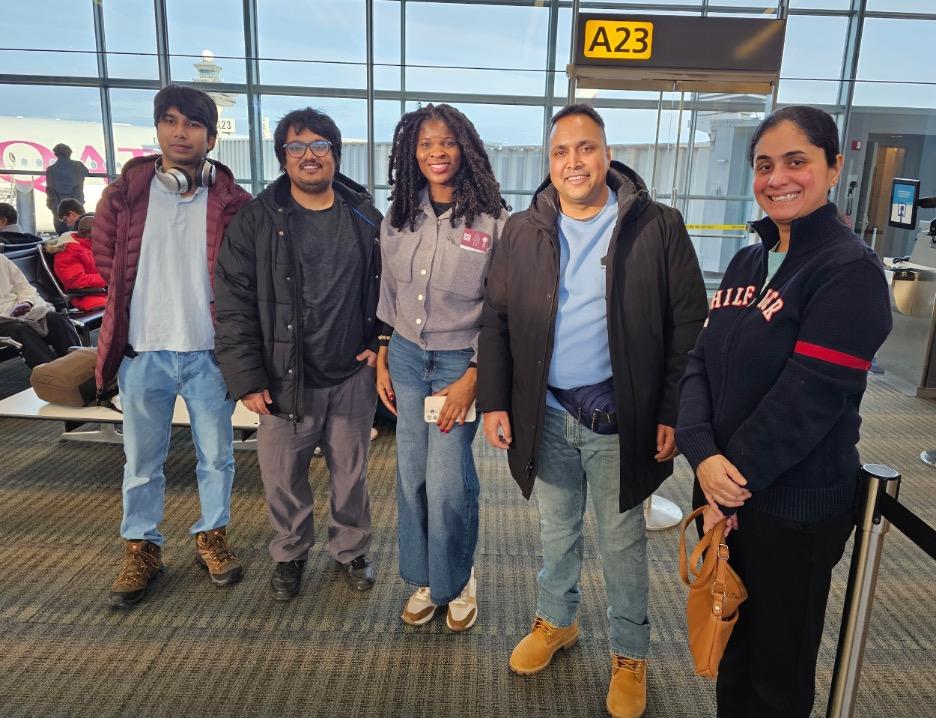
Day 0-2: Travel from DC to Kathmandu
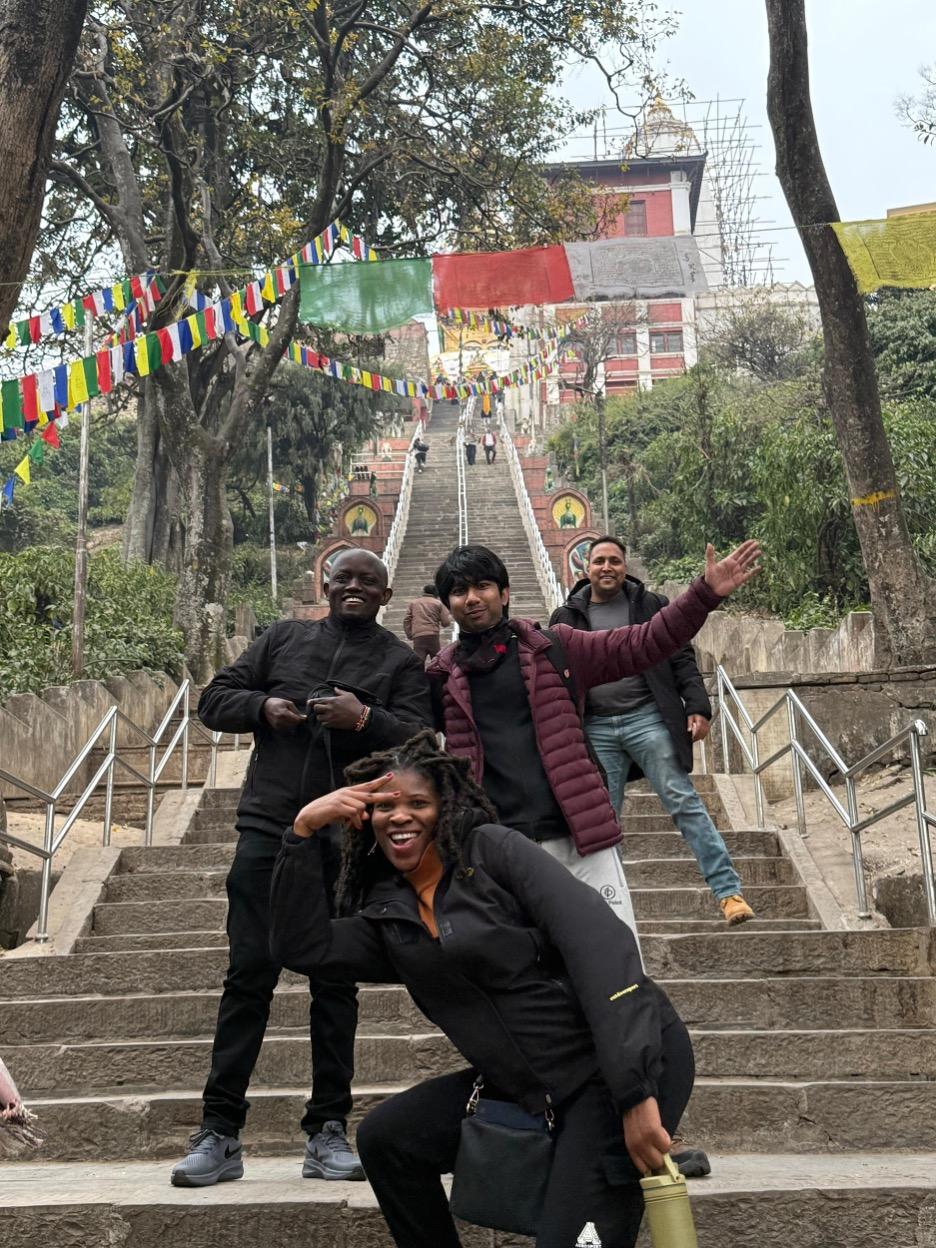
Day 3: Meeting with WCN and visiting cultural sites
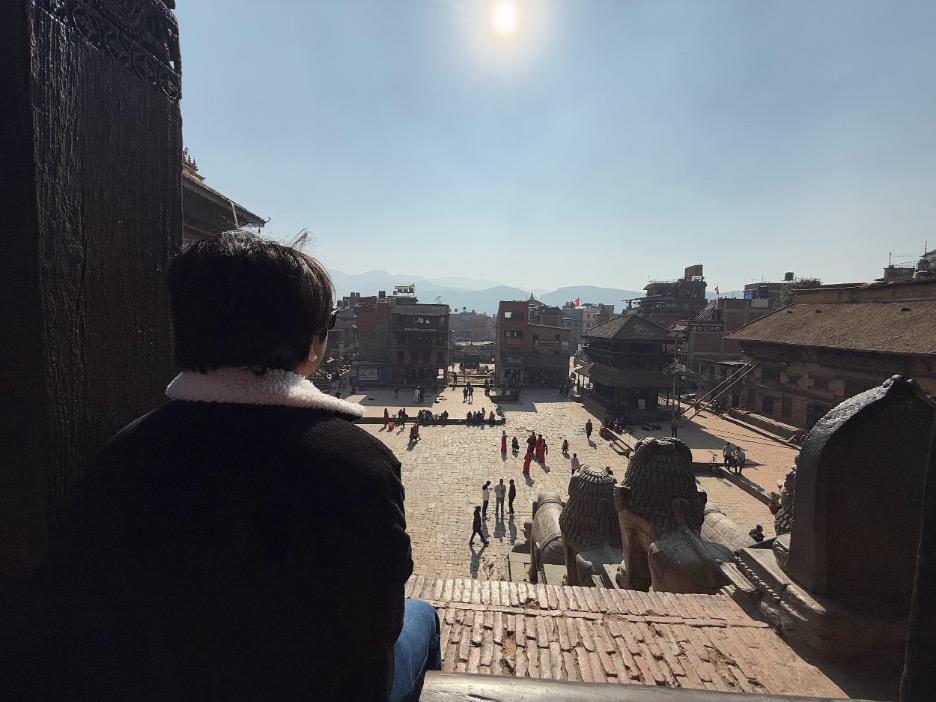
Day 4: Visit Bhaktapur and arrive at Sanskriti farms
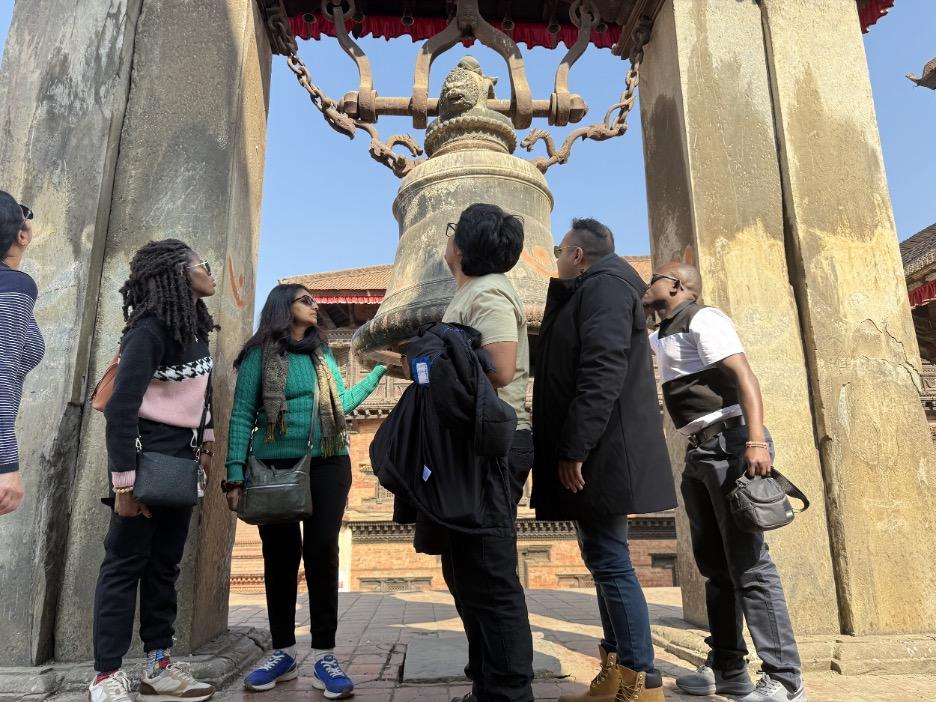
Day 5: Namobuddha hike, village, and Sanskriti farm tour
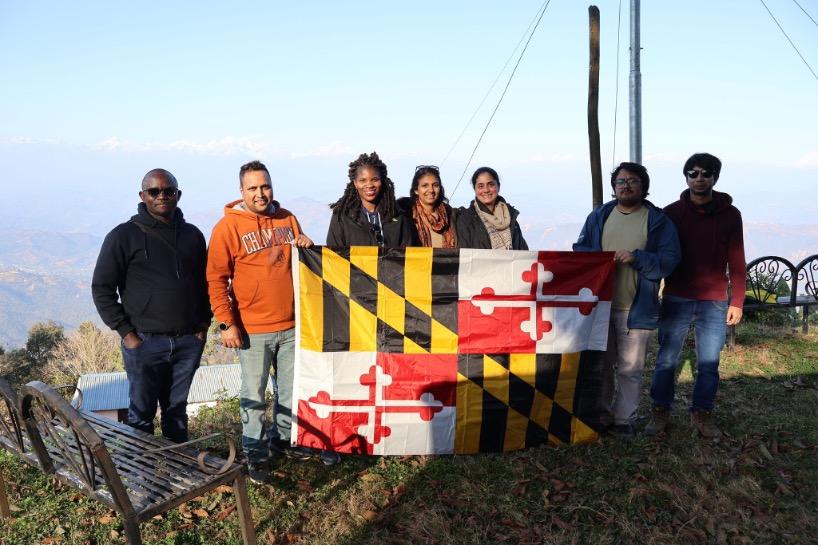
Day 6: Tree planting at Sanskriti Farm and Village tour
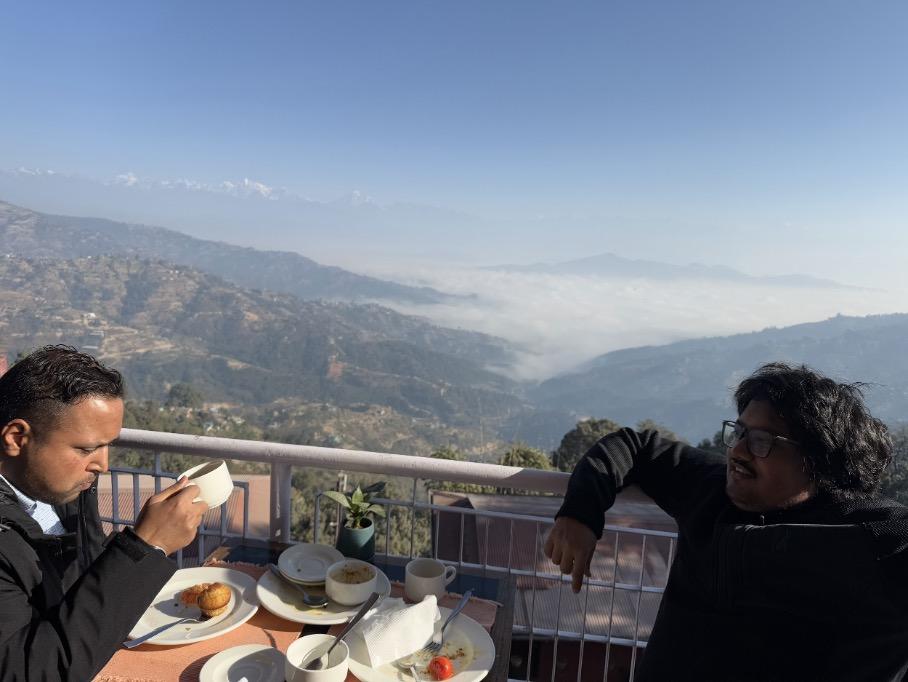
Day 7: Dhulikhel Hospital and Water Treatment Plant
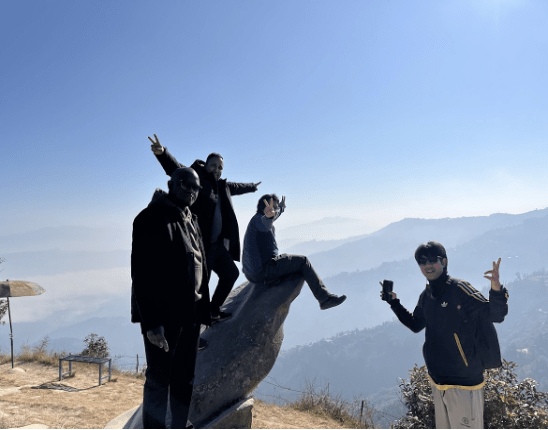
Day 8: Thousand Steps, Kathmandu, Shivapuri
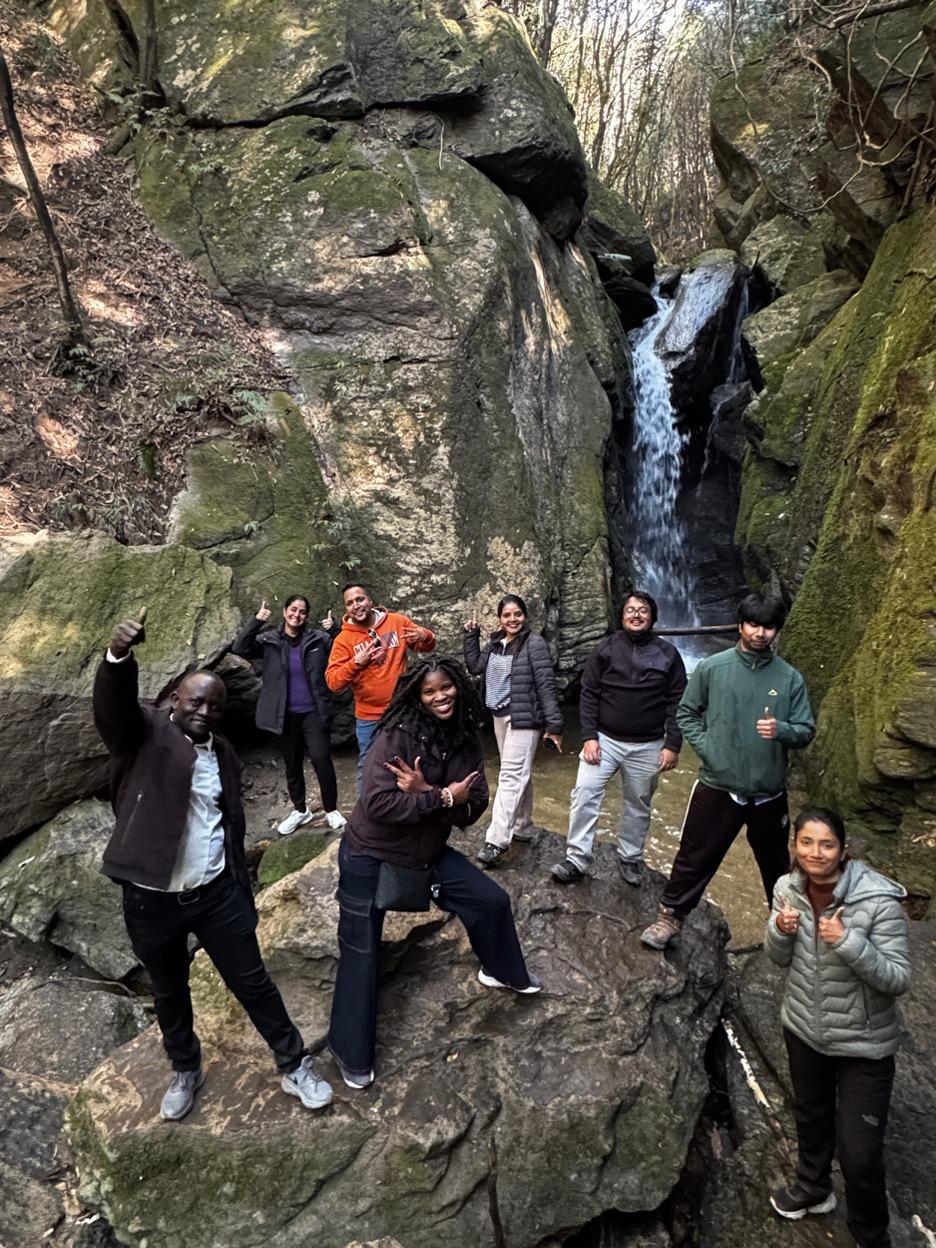
Day 9: Bishnu Dwar waterfall, Budhanilkantha Temple, Thamel Market
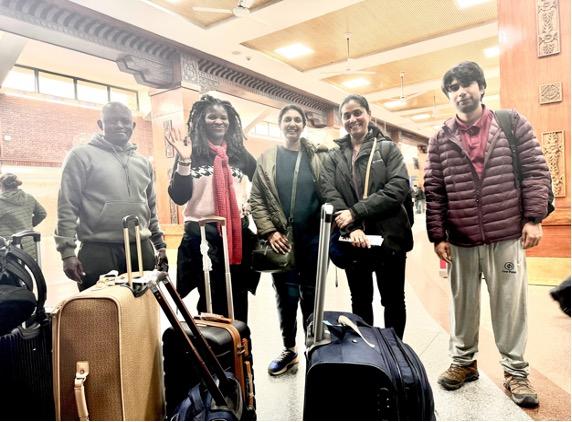
Day 10: One last lunch and departure
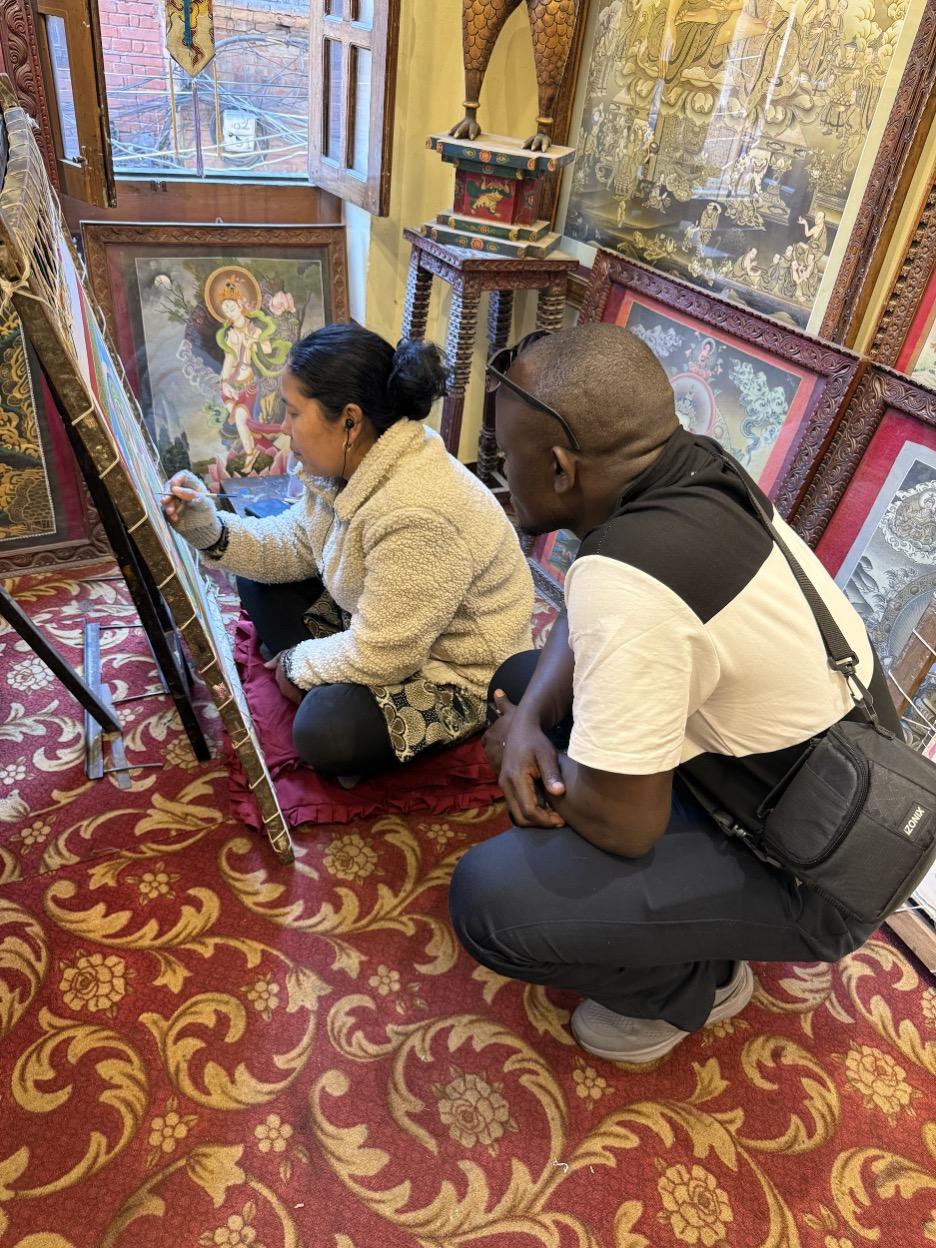
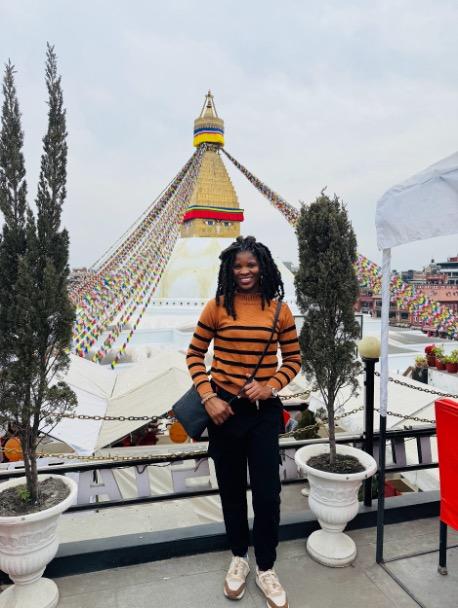

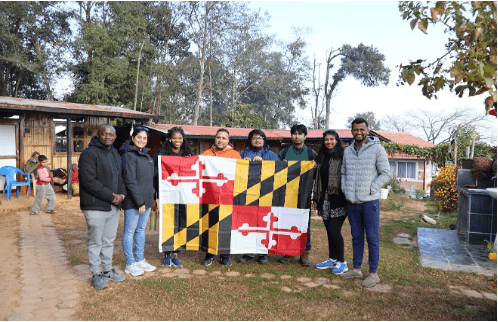
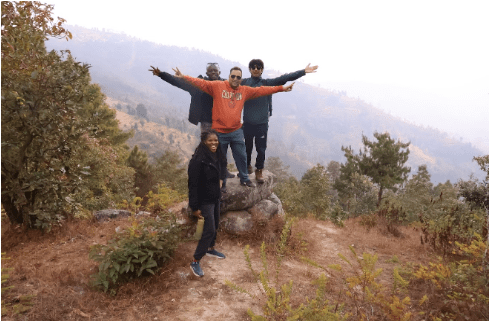
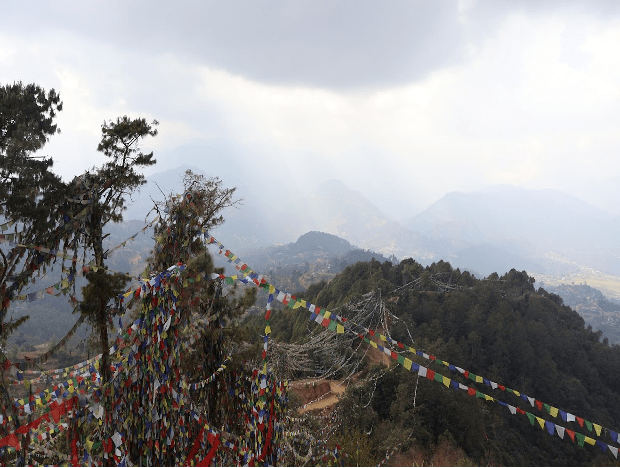
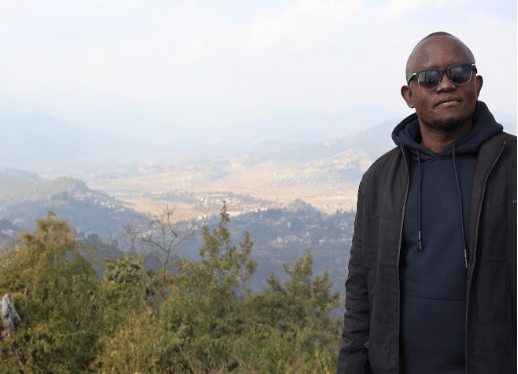
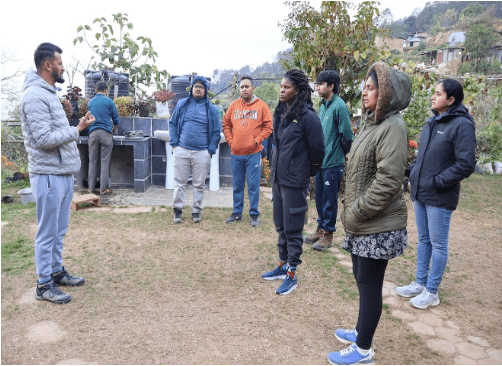
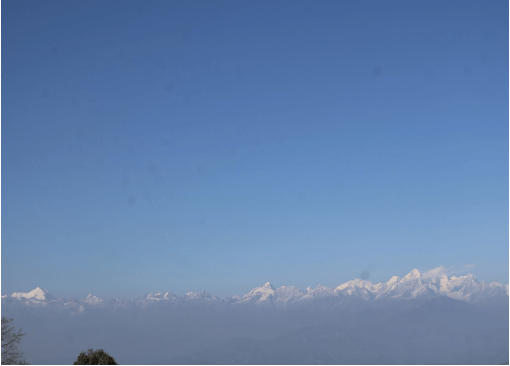
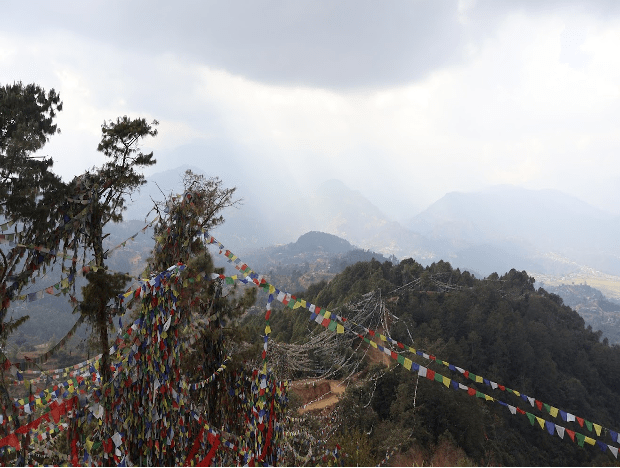
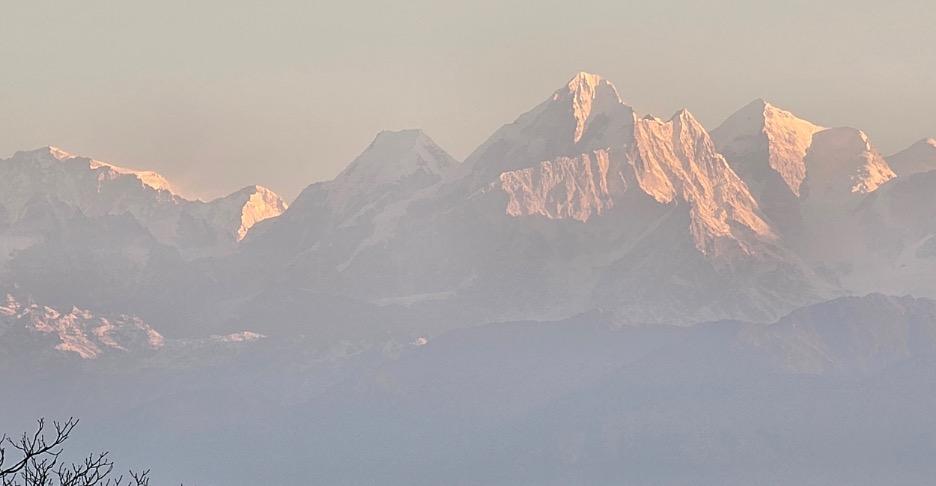
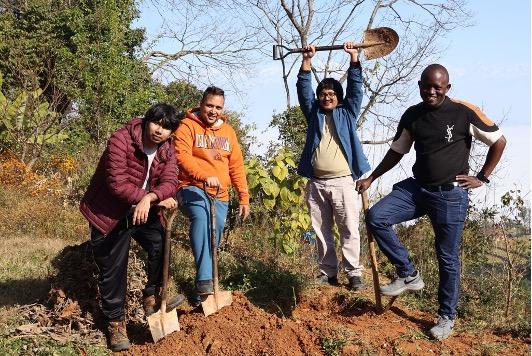
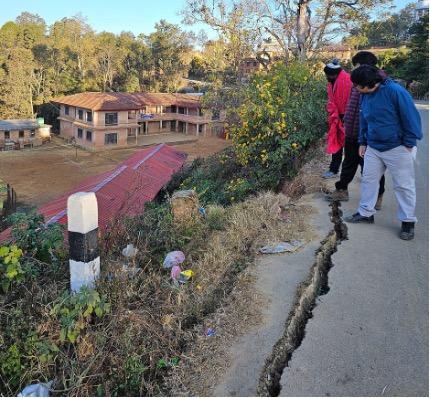
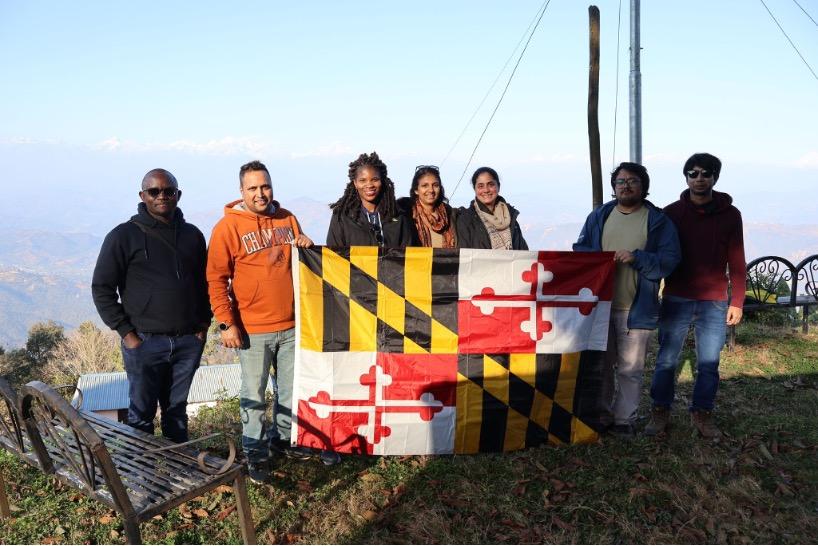
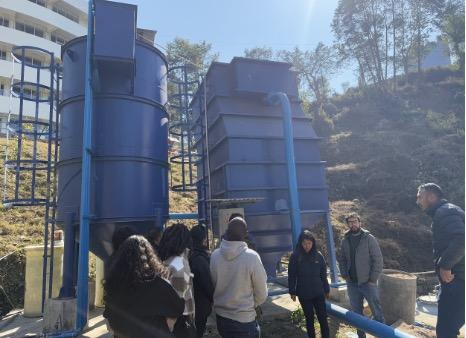
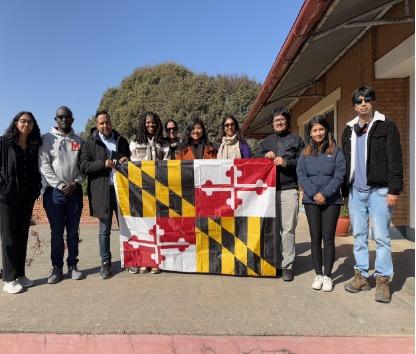
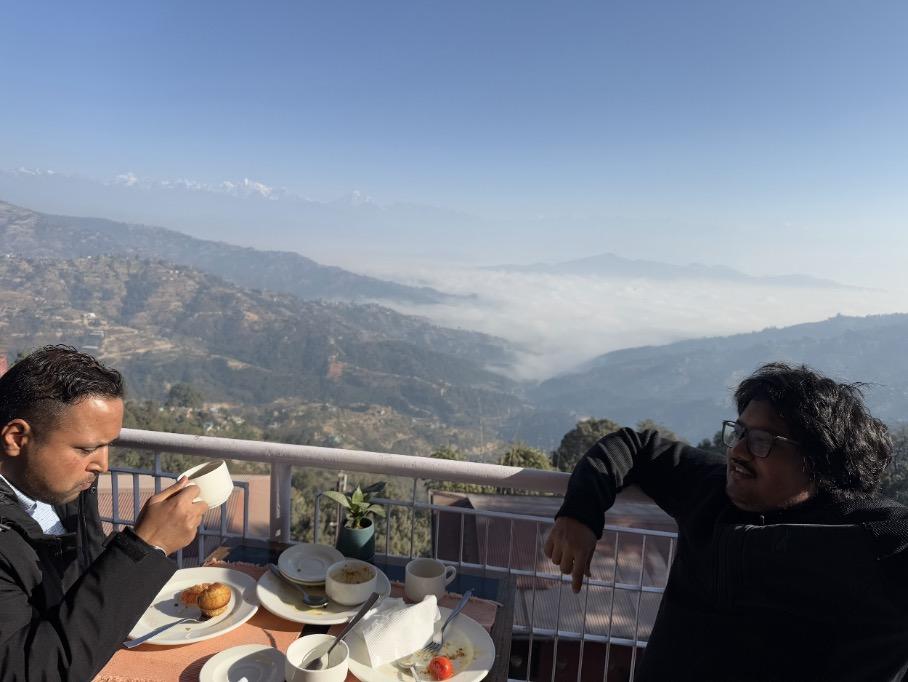
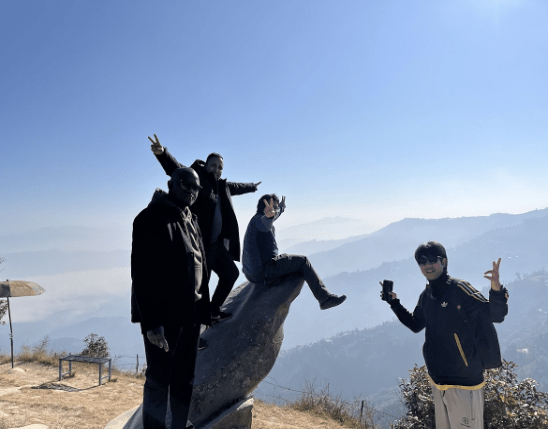
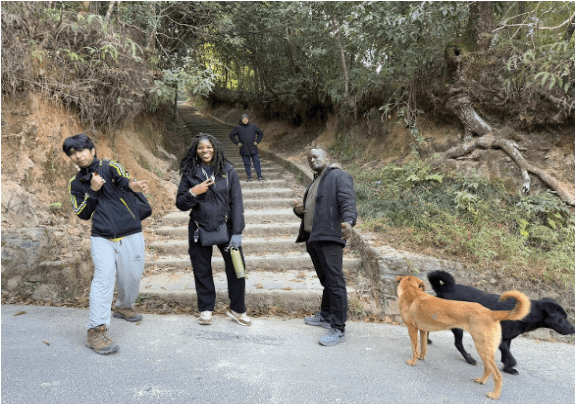
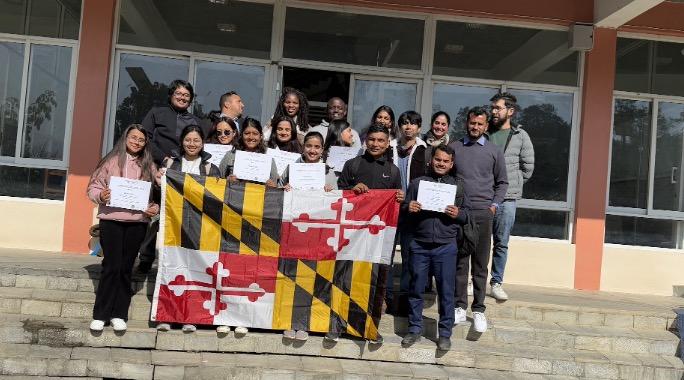
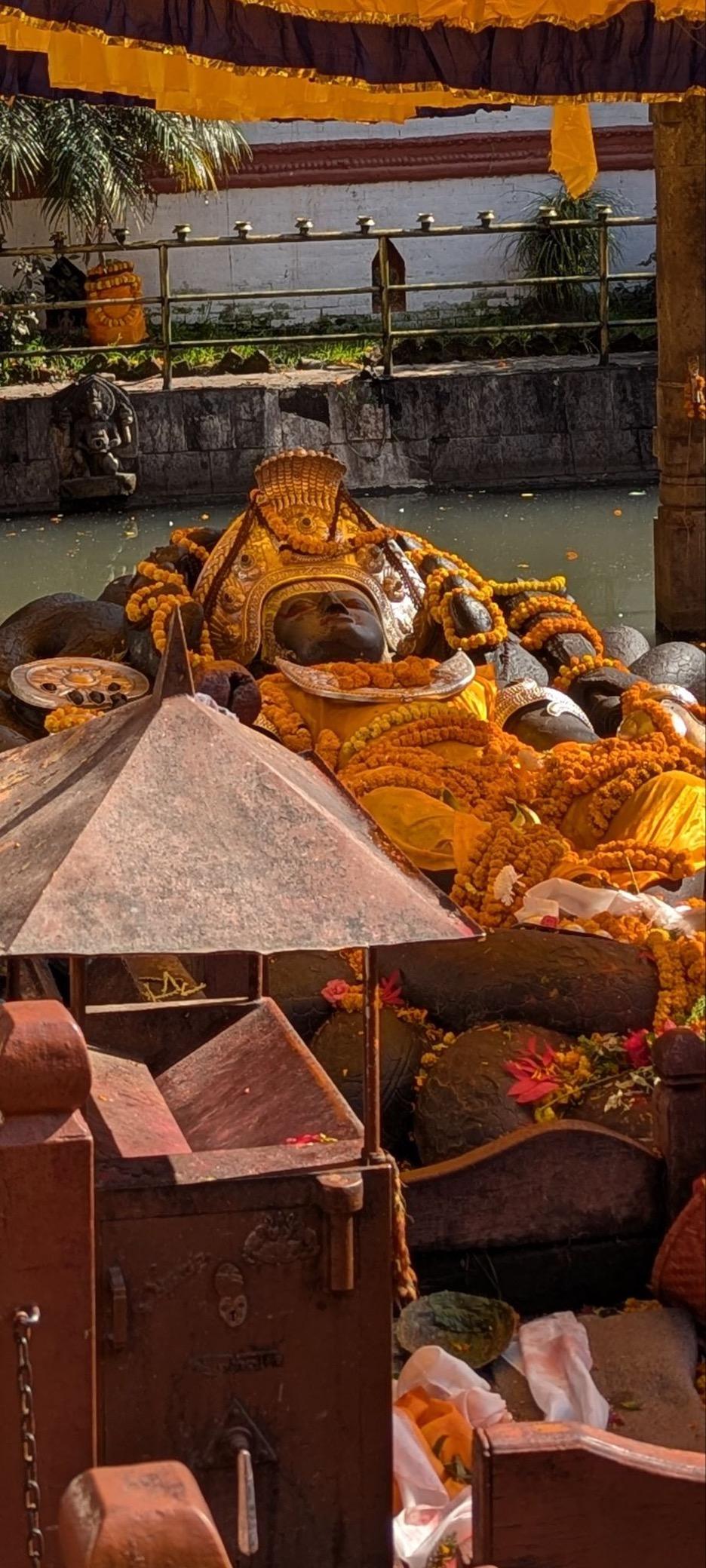
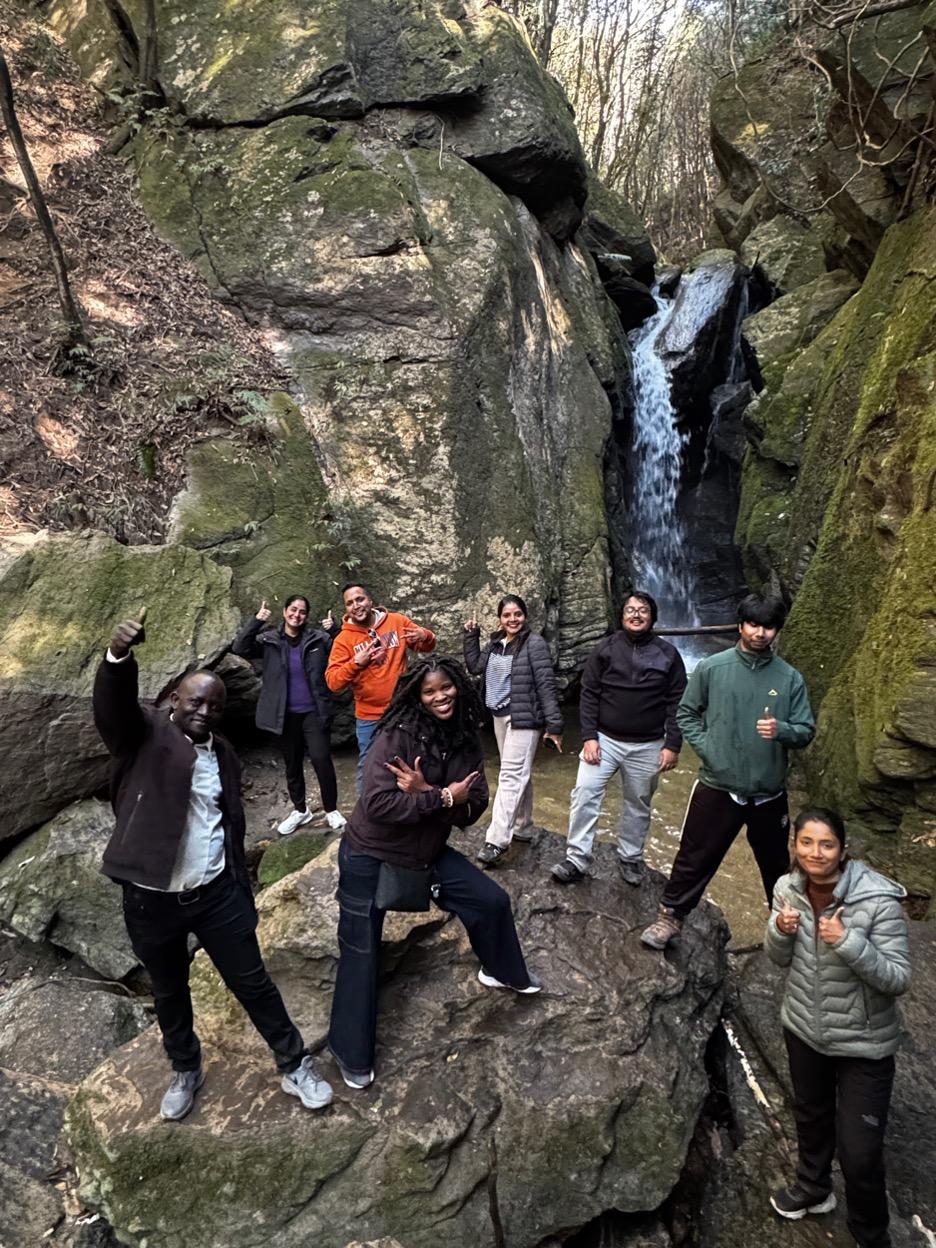
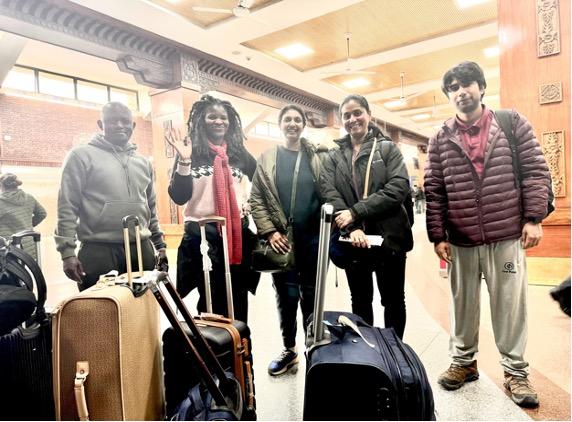
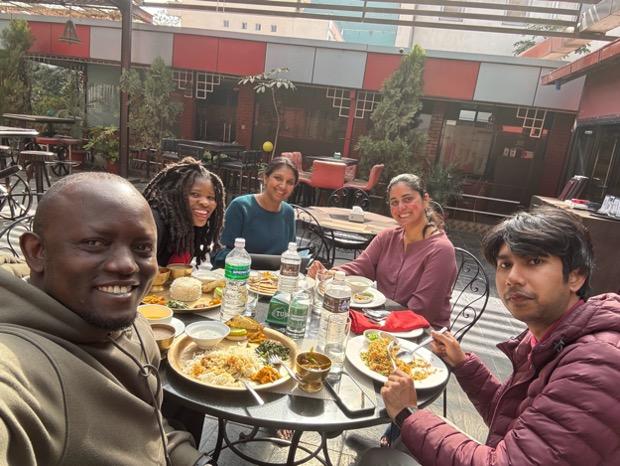
Meet the Leaders of the Travel Team:
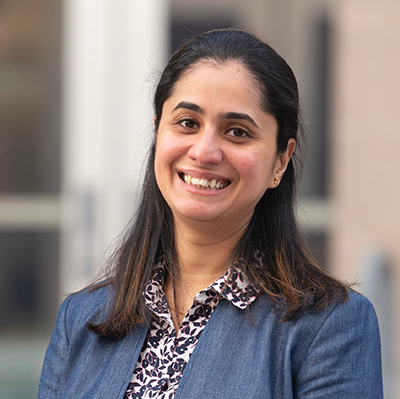
Dr. Suhana Chattopadhyay is an Assistant Research Professor in the Department of Global, Environmental, and Occupational Health (GEOH) at the University of Maryland. She is the Program Manager of the Global STEWARDS program, an NSF-funded fellowship that prepares doctoral students to be interdisciplinary researchers at the Food-Energy-Water nexus. She is also a researcher with the CONSERVE Center of Excellence, funded by USDA-NIFA which investigates transformative on‐farm treatment solutions that enable the safe use of nontraditional irrigation water.
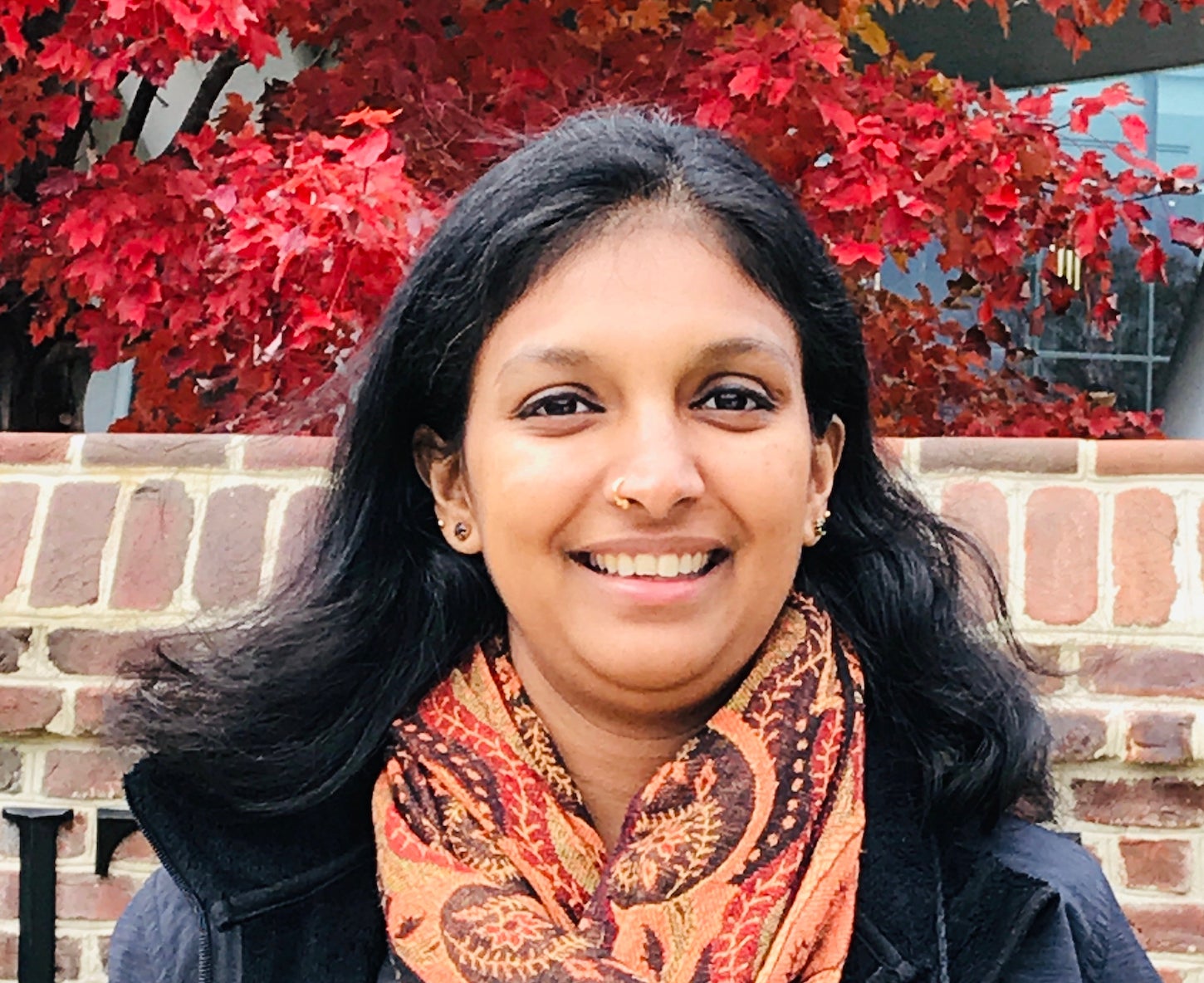
Dr. Leena Malayil is an Assistant Research Professor in the Department of Global, Environmental, and Occupational Health (GEOH) at the University of Maryland. She is the program manager for CONSERVE and also part of the DAWN education team and manages the Summer Internship Program. She also directs the Maryland Safe Drinking Water Study, an initiative to protect drinking water in underserved communities in Maryland. This project aims to evaluate the microbial and chemical contaminants present in both municipal water and well waters within MD. She received a PhD in Toxicology and Environmental Health from the University of Maryland, an MS in Toxicology from the University of Georgia as well as an MSc in Microbiology and a triple major (Zoology, Chemistry and Microbiology) BSc degree from India.
Meet the UMD Global STEWARDS on the travel team:
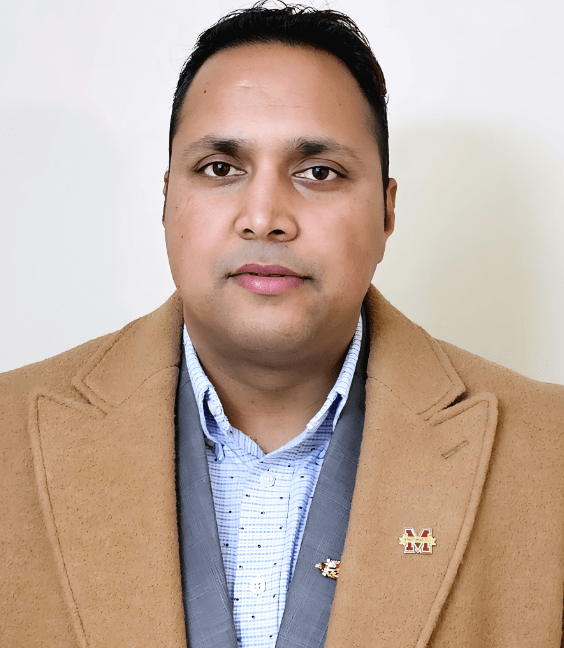
Ujjwol Subedi: Ujjwol is a Ph.D. student in the Department of Nutrition and Food Science at the University of Maryland, College Park. He earned a master’s degree in Nutrition and Food Science from UMD and a bachelor’s degree in Food Technology from Tribhuvan University, Nepal. Before graduate studies, he worked for seven years in food research in Nepal, focusing on food processing, product development, and laboratory analysis. His current research focuses on developing sustainable biocontrol measures to mitigate foodborne pathogens, including E. coli, Salmonella, and Listeria, in leafy greens during the preharvest stage. Ujjwol is committed to advancing food safety and public health through innovative research, contributing to sustainable food systems and fostering interdisciplinary collaboration.
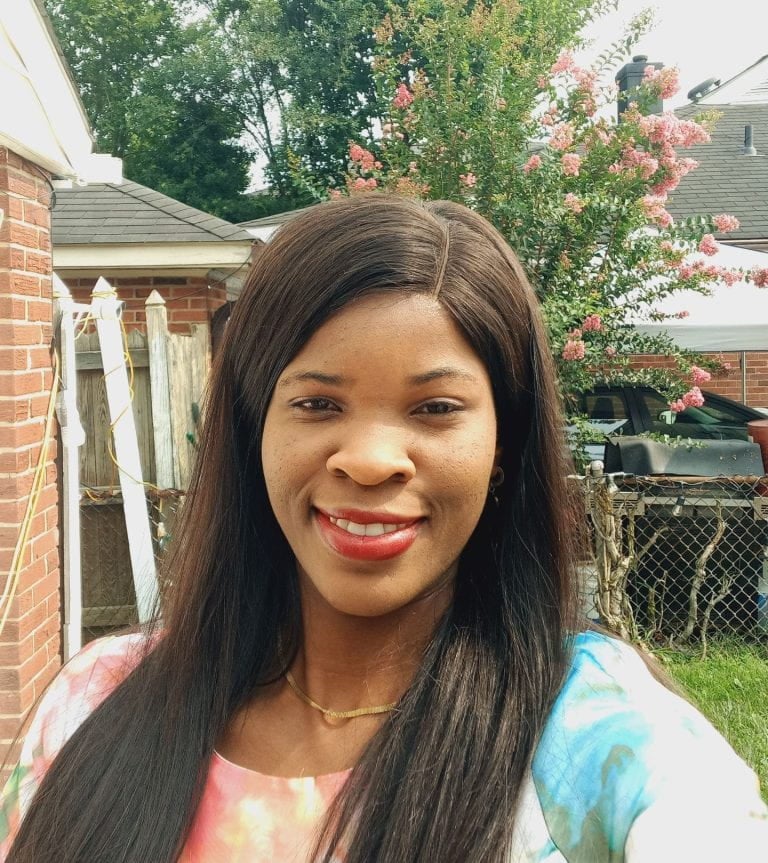
Opeyemi Ogedengbe: Opeyemi is a doctoral student in the Department of Nutrition and Food Science. She holds a Bachelor’s in Medical Biochemistry and a Master’s in Biochemistry from the University of Benin, Nigeria, where she focused on Nutritional Biochemistry as an approach to enhanced public health. Her research interests involve investigating the efficacy of nutritional therapy and its synergistic mechanism in modulating cellular processes and activities of metabolites in the prevention of metabolic syndromes such as diabetes and obesity.
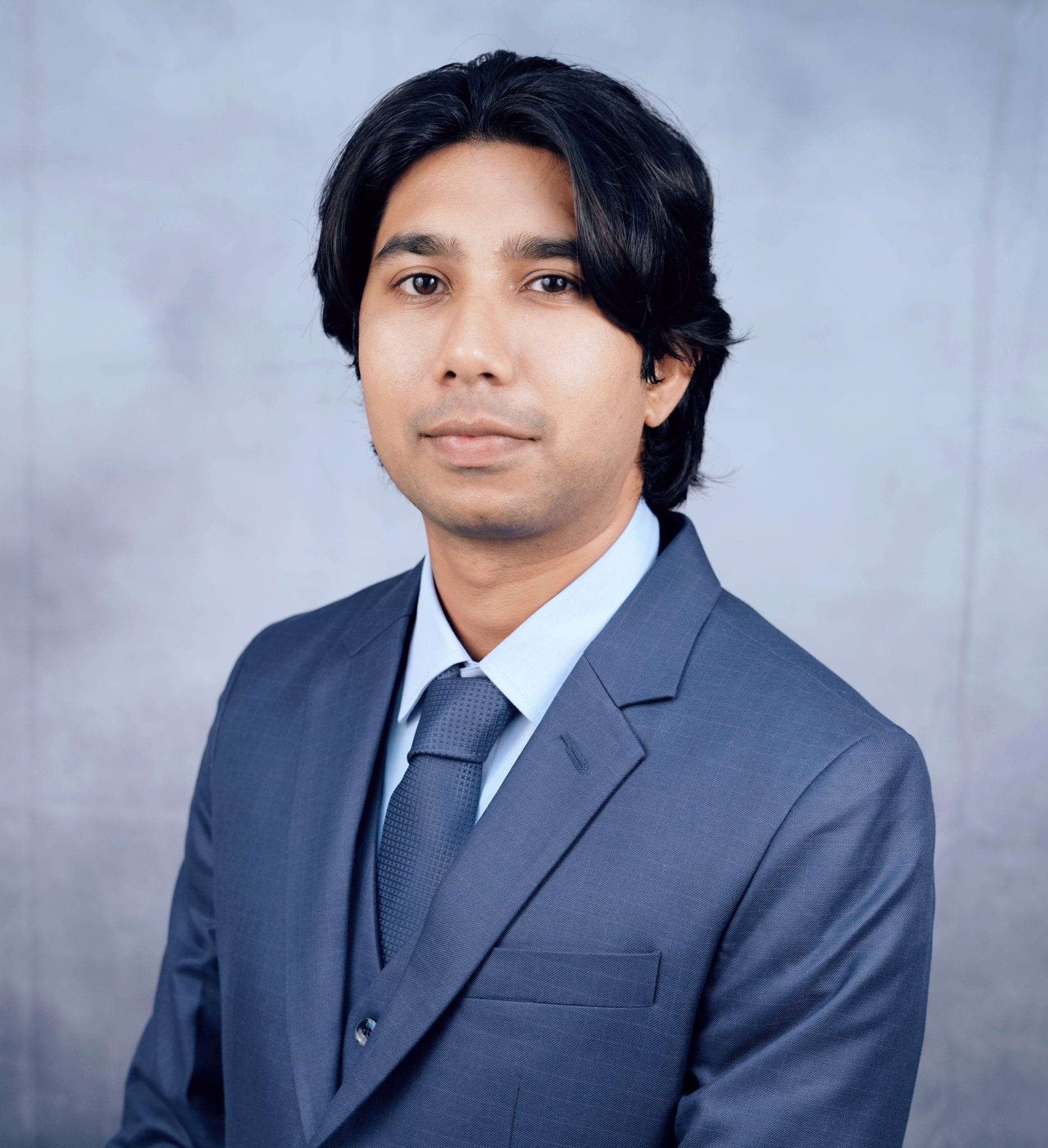
Rafian Aziz: Rafian is a master’s student in the Bioenergy and Biotechnology Laboratory within the Department of Environmental Science and Technology at the University of Maryland. He completed his Bachelor’s from the University of Dhaka, Bangladesh, where he focused on arsenic contamination in rice and carbon sequestration in peat soils. His research interests include sustainable waste management through food waste composting and anaerobic digestion, with an emphasis on reducing greenhouse gas emissions. Rafian is also dedicated to exploring how composting can contribute to soil health and water conservation, particularly in climate-vulnerable regions, while developing solutions that foster environmental resilience and support community well-being.
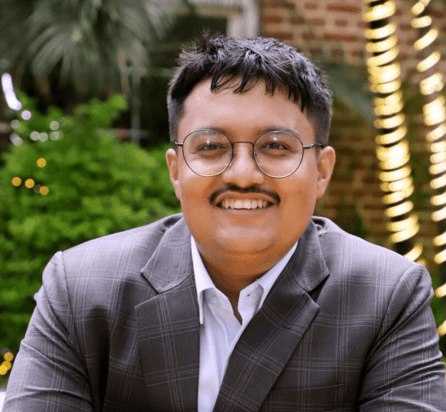
Samyam Aryal: Samyam is a PhD student in the Epidemiology program at the University of Maryland School of Public Health. He has a masters in Biostatistics and Epidemiology from India and a Bachelor’s in Ayurvedic Medicine from Nepal. His research interests include infectious diseases, and using machine learning for development of early warning systems for diarrheal diseases.
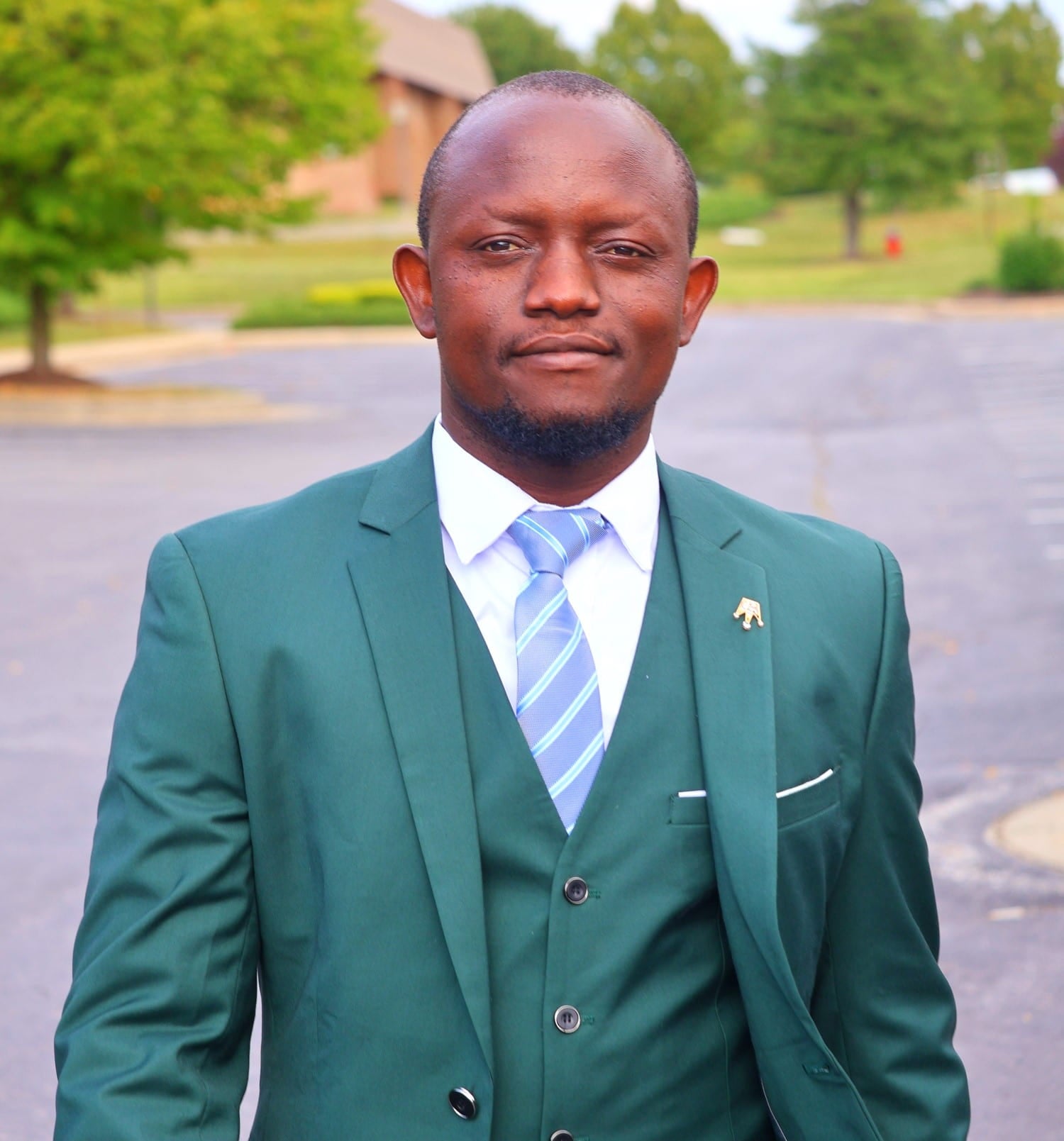
Tiberias Okanga: Tiberias is a PhD student in the Environmental Chemistry program at the University of Maryland’s Department of Chemistry and Biochemistry. He holds a master’s degree in chemistry from the University of Pecs, Hungary, and a bachelor’s degree in industrial chemistry from Nairobi, Kenya. His research interests include air quality and environmental justice. He focuses on monitoring air quality using both low-cost and advanced monitors and employing electron microscopy techniques to track and understand criteria pollutants.
Here's a sampling of their interests and intentions for the trip:
The Winter Amp trip to Nepal is relevant to my current research, which focuses on climate change and its effect on vector-borne diseases, primarily Dengue, which has been on the rise in Nepal. The Winter Amp trip links directly with local communities, healthcare providers, and public health officials, which will deepen my understanding of the cultural and logistical barriers to effective disease management. The collaboration effort between UMD and Kathmandu University presents the opportunity to establish ties with public health researchers back home in Nepal. This trip to Nepal provides an opportunity for hands-on practice, better collaboration, and fine-tuning our understanding of the challenges and opportunities for preventing Dengue. --Samyam Aryal
Inspired by past participants' experiences at Kathmandu University and Sanskriti Farms, I look forward to learning how Nepalese communities tackle resource management and sustainable farming methods. I hope to gain insight into the practical applications of environmental science and ways to enhance resilience in global ecological contexts. The trip will enrich my research in atmospheric chemistry, especially my focus on air quality. The trip offers an exceptional mix of cultural exchange and technical learning. I will bring back actionable solutions and global perspectives to my academic and professional work, which prepares me to contribute to interdisciplinary solutions for complex environmental challenges. --Tiberias Okanga
This experience will align closely with my research in food safety and sustainable food systems, as I will gain practical insights into the challenges and strategies employed in the field. Learning from local approaches and exploring the implementation of sustainable food practices in diverse contexts will enhance my knowledge too. I look forward to contributing to the program by sharing my knowledge in areas like postharvest technology, food safety, nutrition, and sustainable water use techniques, including aquaponics and hydroponics. --Ujjwol Subedi
Participating in this trip will allow me to see and learn firsthand from other countries and cultures the methods and practices to bridge the the Food, Energy, Water, and Climate nexus in the implementation of improved food and water security for future use and improved public health. This in turn will give more insights and knowledge on their present challenges and modalities that can be developed to solve these needs through the collaborative network with these stakeholders for improved public health.--Opeyemi Odegengbe
This trip to Nepal will deepen my understanding of FEW nexus challenges in diverse contexts. Additionally, the Winter Amp experience will enhance my global perspective and cultural awareness while helping me develop communication skills through teaching and outreach activities. I’ll have the opportunity to observe how different regions of the world manage food waste, particularly in rural and urban contexts of Nepal. I'm particularly interested in how composting and digestion systems can be integrated into their broader sustainability efforts. --Rafian Aziz

